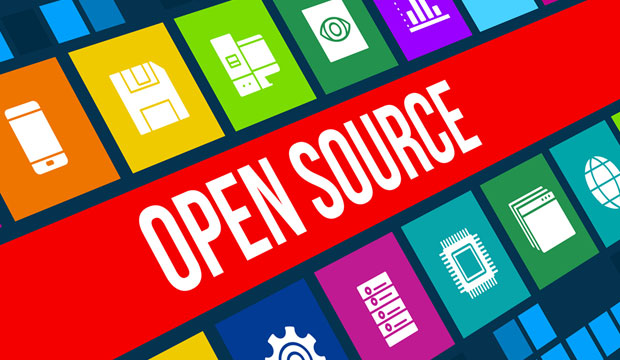Optimism about the future of open source is high among software developers worldwide. However, a growing number of devs worry that a lack of funding and corporate support threatens its sustainability.
That is one of the key takeaways from DigitalOcean’s second annual open source survey, published in its “Currents, Open Source 2019,” seasonal report last week.
The online survey provides a snapshot of the state of open source, as well as a gauge of the inclusivity and friendliness of contributors. More than 5,800 developers from around the world participated.
Because developers may work as individuals or in small teams, the survey was not sent to specific companies. Respondents self-identified and shared the size of the company/team they worked with, said Eddie Zaneski, manager of developer relations at DigitalOcean. The company reached out to the developer community primarily through social media and email campaigns from late August to early October.
Overall, developers were optimistic about the state of the open source community, but they expressed some concern about the future sustainability of open source, Zaneski noted.
“The findings also raise questions about how welcoming the community is to newcomers, especially women and younger developers,” he told LinuxInsider.
“The jury is still out on whether big tech engagement with the open source community is a net positive or negative,” Zaneski added.
Results Overview
Participation in open source increased 8 percent from last year’s survey. That increase in participation applied not only to new participants but also to those already contributing. Sixty percent of former participants who responded to the survey again this year said they increased their involvement in open source.
One-third of the participants expressed doubt over the future sustainability of open source tech, citing lack of funding and support from large corporations as obstacles to future success.
Many respondents cited a need for improvement when it comes to inclusivity. However, developers had good things to say about inclusivity and friendliness in open source overall.
Members of younger generations — especially women — said they felt relatively more out of place and less welcome in the open source community. Only one-third of women respondents rated the diversity of the community highly. One-fourth of women polled rated it very low.
Surprising Results
This year’s survey results showed key generational differences, according to Zaneski. The researchers were most surprised by the differences in opinions among developers of different generations and genders.
While the developer community overall is optimistic about the future of the open source movement, 76 percent of developers younger than age 34 believed the community was growing, compared to 57 percent of developers over age 45.
Women in the open source community were much more likely to say they felt out of place, compared to men. That signals a need for the open source movement to improve on issues of inclusivity, Zaneski said.
Key Elements for Survival
Inclusiveness and friendliness are key to the success of any open source project. As in a workplace, if contributors do not feel welcome, they are not going to be able to do their best work or want to stick around, suggested Gareth Greenway, senior software developer at SaltStack.
“If we look at a lot of the more successful and long-lived open source projects out there, they share a common trait in that they prioritize community interaction,” he told LinuxInsider.
Open source projects must provide three essential things for participants:
- Project admins need to ensure that people feel welcome when joining a new community.
- They need to make sure people feel like they can ask their questions without fear of ridicule.
- They also need to establish a clear respect for other competing projects that might be in a similar space.
“Open source projects, much like companies, should stand on their own merits, not by putting down others,” said Greenway.
Without inclusiveness and friendliness, open source is in danger of becoming a gated community whose residents fail to reflect the individuals, groups and larger world — a sure path to eventual irrelevance, observed Charles King, principal analyst at Pund-IT.
“I prefer to hope that these issues will be resolved generationally, as sexist, racist and homophobic elements are replaced by younger, open-minded individuals and groups,” he told LinuxInsider.
Big-Tech Impact Vague
Opinions are split on the impact of big tech players on the open source environment, according to the survey. Two-thirds of the responding developers either were concerned about or unsure of big tech’s involvement in open source.
Developers who participated in last year’s survey were split 50/50 on whether large tech companies contributed as much to the open source community as they gained, Zaneski noted.
This year, opinions were less clear, with 40 percent of developers saying they were concerned about the level of big tech involvement, and 25 percent who were unsure.
This year, big tech’s true support for open source was still a sore spot for many developers. There was a consensus that big tech companies lack good intentions and violate license restrictions for competitive advantages.
Alphabet and Microsoft were perceived as being most friendly toward the open source community. Apple was viewed as being distinctly unfriendly, mirroring last year’s findings.
Still, 84 percent of developers this year reported optimism about the future of open source. Seventy-three percent of the developers surveyed expressed belief that the open source community is growing.
Redefining Factors
The high level of optimism and confidence in the open source community, and the fact that 60 percent of those responding to the current survey increased their open source involvement reflect the “long established fact that open source has won,” said Greenway.
“When you see companies that traditionally took hard stances against it doing an about-face and becoming some of its strongest supporters, it is very telling, he pointed out.
The big hurdle that a lot of projects and companies now face is the same hurdle they always have faced: how to fund their work.
“It’s unfortunate that a lot of these groups believe that they have to adopt more-restrictive licensing models to do so,” Greenway said. “Open source is not a business model. It never has been. It is a development model.”
High-Value Efforts
The value of any survey resides in the quality of its questions and participants. The responses of 5,800-plus developers from various global regions provide a quality snapshot of the overall state of open source, said King.
“The fact that the survey included questions about thorny subjects, including diversity and inclusiveness, corporate contributions, and the efforts of some vendors to twist open source for their own competitive gain speaks to the value of the effort,” he noted.
Future Insights
After more than 20 years, the open source community still enjoys growth far beyond what the original leaders envisioned. As 2020 approaches, it is clear that the open source community will need to continue evolving to stay healthy, and to engage people from all walks of life to participate in building the software that will power our future, Zaneski said.
“Our hope is that these results will spur more participation in the open source community,” he remarked, “especially from women and young people.”















































